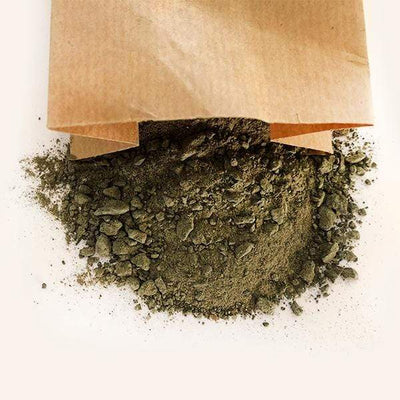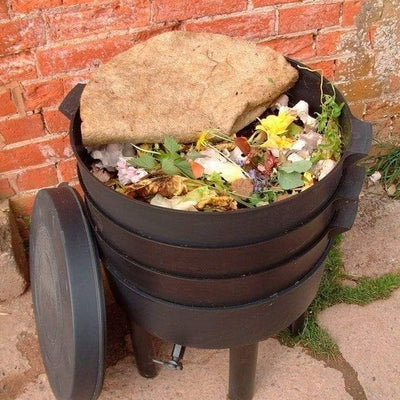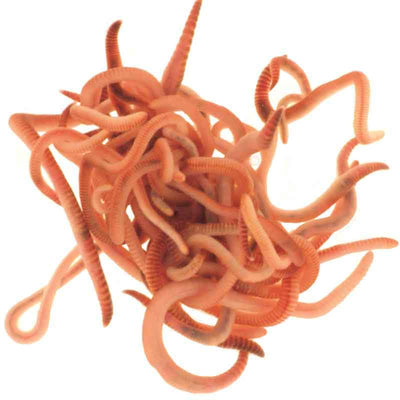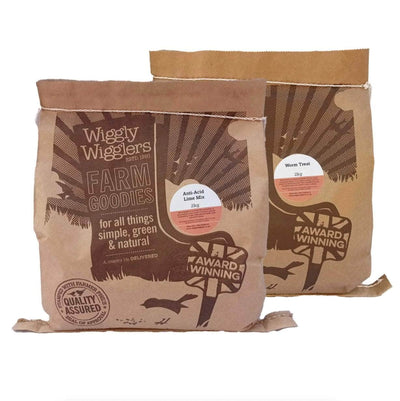As the temperatures drop and frosty mornings return, many people ask: can Bokashi work outside in the winter? If you're using or considering a Bokashi composting system, it's important to know how it behaves in colder weather – and how to keep the process running smoothly all year round.
In this post, we’ll explore whether Bokashi bins can be kept outside during winter, what impact the cold has on fermentation, and how to get the best results during the chillier months.
Does Bokashi Composting Still Work in Winter?

Yes, Bokashi composting can still work in winter, but with a few important considerations.
Bokashi relies on Effective Microorganisms (EM) to ferment food waste. These microbes are still active in cooler temperatures, but they work more slowly. While the process doesn’t completely stop in the cold, it can take longer for waste to ferment properly, especially if the bin is exposed to freezing conditions.
Can You Keep a Bokashi Bin Outside?
You can keep a Bokashi bin outside, but it’s not ideal in freezing weather. Here's why:
❄️ Temperature Sensitivity
The fermentation process works best at room temperature (15°C to 25°C). When temperatures fall below 10°C, the microbes slow down, and below 0°C, they may go dormant. Fermentation won't reverse, but it may pause until the bin warms up again.
🌧️ Weather Exposure
If your Bokashi bin is outside, it must be protected from rain, snow, and direct frost. Moisture getting inside the bin can disrupt the anaerobic process, while freezing and thawing cycles may cause the lid or tap to crack.
Tips for Using Bokashi Bins in Winter

If you want to keep composting through the winter, here are a few practical tips:
✅ Keep the Bin Indoors (if possible)
Store the bin in a garage, shed, utility room, or even under the kitchen sink. This keeps the microbes active and the process consistent.
✅ Use Insulation
If the bin must stay outside, consider placing it in an insulated container or wrapping it in old blankets, bubble wrap or a cool box to protect it from extreme cold.
✅ Extend Fermentation Time
In colder temperatures, allow an extra week or two of fermentation after the bin is full before burying the waste.
✅ Batch Bury in Milder Spells
Wait for a milder day to bury your fermented waste if your soil is frozen solid. Alternatively, store full bins until the ground is workable again.
Does Cold Weather Affect the Bokashi Tea?
Yes, cold weather can affect how much Bokashi tea (the nutrient-rich liquid byproduct) you produce. In lower temperatures, food waste tends to release less liquid, and the microbial activity is slower. However, you should still drain the bin every few days to avoid a build-up of moisture inside.
Benefits of Bokashi Composting in Winter
Despite the temperature challenges, Bokashi still offers several winter-friendly advantages:
✅ No Need to Turn Compost
Unlike traditional compost heaps that require regular turning and heat to break down material, Bokashi is self-contained and anaerobic, making it ideal for winter use.
✅ Indoor Use
Because it's odour-controlled and compact, a Bokashi bin can continue operating indoors when outdoor composting isn't practical.
✅ Year-Round Waste Reduction
Using Bokashi means you can reduce your food waste throughout the winter months, rather than pausing your composting routine until spring.
Final Thoughts
So, can Bokashi bins work outside in the winter? Yes – but with caution. While the fermentation process slows in cold weather, it doesn't stop completely. For best results, keep your bin sheltered, insulated, or indoors, and be patient with the longer fermentation times.
With a little preparation, Bokashi composting can be a year-round solution for reducing waste and enriching your soil – even when the frost bites.






